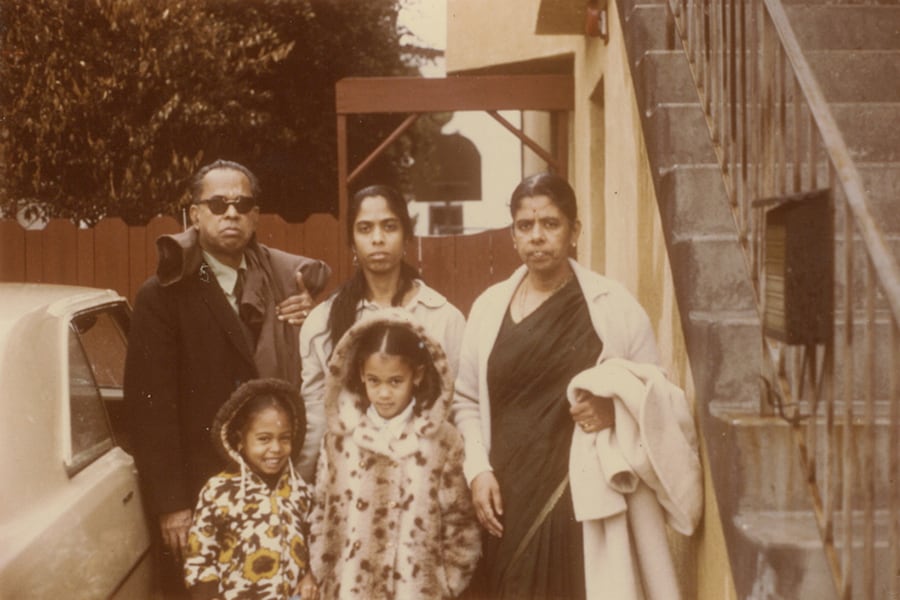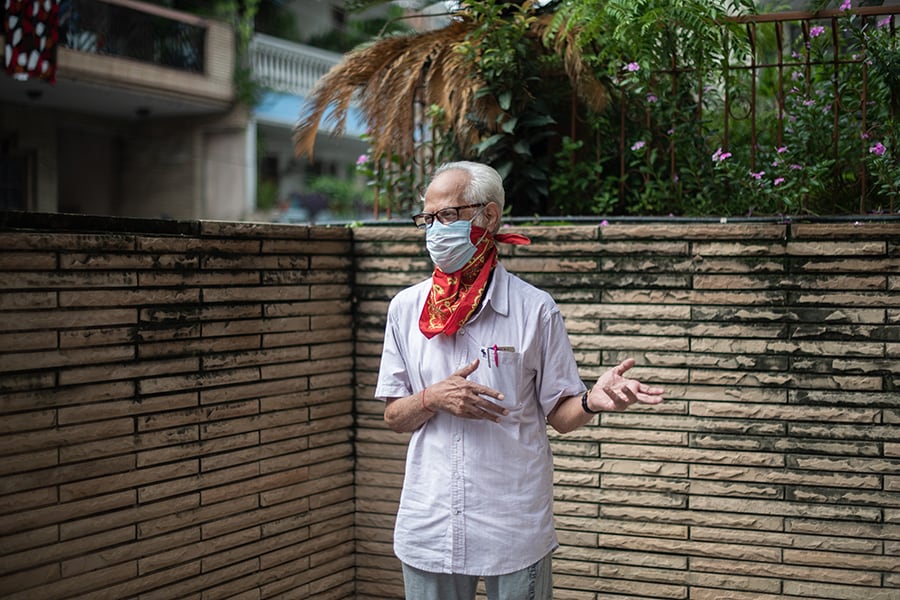
How Kamala Harris' family in India helped shape her values
The Democratic vice-presidential nominee pick gained part of her foundation from her mother's side of the family, which defied stereotypes in India and promoted equality for women
 An image provided by the Jode Biden campaign, Sen. Kamala Harris (D-Calif.), front center, with, from left, her grandfather, sister, mother and grandmother in 1972. The Democratic vice-presidential pick gained part of her foundation from her mother’s side of the family, which defied stereotypes in India and promoted equality for women. (The Joe Biden campaign via The New York Times)
An image provided by the Jode Biden campaign, Sen. Kamala Harris (D-Calif.), front center, with, from left, her grandfather, sister, mother and grandmother in 1972. The Democratic vice-presidential pick gained part of her foundation from her mother’s side of the family, which defied stereotypes in India and promoted equality for women. (The Joe Biden campaign via The New York Times)
CHENNAI, India — One of Sen. Kamala Harris’ brightest childhood memories was walking down the beach hand in hand with her Indian grandfather.
Her grandfather, P.V. Gopalan, had served for decades in the Indian government, and his ritual, nearly every morning, was to meet up with his retired buddies and talk politics as they strolled along the beach in Besant Nagar, a seaside neighborhood in Chennai where brightly painted fishing boats line the sand and Hindu temples stare out at the sea. During her visits from the United States, Harris tagged along while the men discussed equal rights, corruption and the direction India was headed.
“I remember the stories that they would tell and the passion with which they spoke about the importance of democracy,” Harris said in a 2018 speech to an Indian-American group. “As I reflect on those moments in my life that have had the most impact on who I am today — I wasn’t conscious of it at the time — but it was those walks on the beach with my grandfather in Besant Nagar that had a profound impact on who I am today.”
Although Harris has been more understated about her Indian heritage than her experience as a Black woman, her path to U.S. vice-presidential pick has also been guided by the values of her Indian-born mother, her Indian grandfather and her wider Indian family who have provided a lifelong support network that endures even from 8,000 miles away.
Her grandfather, wearing Coke-bottle glasses and often a necktie during strolls, may have looked like many other upper-crust Indian gentlemen. But he defied the conservative stereotypes of his era, embodying a progressive outlook on public service and unswerving support for women, especially in terms of their education, that was years ahead of his time.
©2019 New York Times News Service
 Gopalan Balachandran, an uncle of Sen. Kamala Harris (D-Calif.) in New Delhi, Aug. 16, 2020. The Democratic vice-presidential pick gained part of her foundation from her mother’s side of the family, which defied stereotypes in India and promoted equality for women. (Rebecca Conway/The New York Times)
Gopalan Balachandran, an uncle of Sen. Kamala Harris (D-Calif.) in New Delhi, Aug. 16, 2020. The Democratic vice-presidential pick gained part of her foundation from her mother’s side of the family, which defied stereotypes in India and promoted equality for women. (Rebecca Conway/The New York Times)




